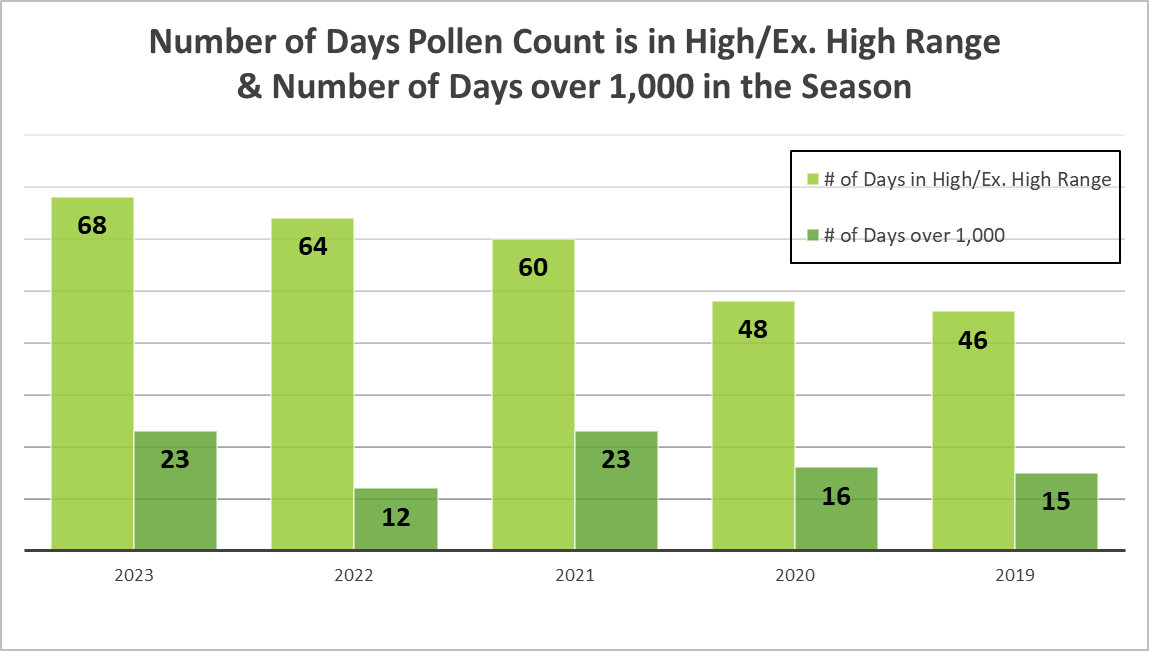‘Spring’ pollen season started early in Georgia this year. In fact, ‘spring season’ started in February with 14 of its 20 days falling in the high range according to the National Allergy Bureau’s (NAB) severity levels when the #AtlantaAllergyPollenCount was recorded. That is more days in the high range (14) than any previous February in the 30 years we have been recording the counts.
Additionally in 2023, the pollen count reached the extremely high range (over 1,500) earlier than any previous year. On March 6th the count crossed that threshold, and we went on to see 23 of the 25 days the count was recorded that month fall in the high or extremely high range. That’s 93% of recorded days!
In April, the #AAPC was recorded on 28 days, and 25 of those registered in the high or extremely high range for tree pollen. In total, from February 1st through May 15th, of the 83 days the pollen count was recorded, 68 days were in the high or extremely high range. That’s 86% – or a long time to be miserable!
Spring season ’23 had 22 days where the count was over 1,000. In 2022, that number was only 12, but 2022 was a very long season. Atlanta Allergy & Asthma physicians advise their patients to be less concerned with the highest numbers in a season, but rather the overall number of days in the season with counts in the high or extremely high range.
By comparison, in 2022 pollen levels began to rise in mid-February (7 total days in high range) and did not begin to abate until the third week in May. 64 of the 83 days the count was recorded in that timeframe fell in the high or extremely high range. That’s 77% of the days. In fact, between March 22nd and May 5th, we experienced 44 consecutive days in the high or extremely high range!
In 2021, tree pollen did not become a major contributor to the pollen levels until late in February. But from late February through May, the #AtlantaAllergyPollenCount was in the high or extremely high range on 75% of the days the count was recorded. That year there were 23 days the count was over 1,000.
“We are seeing a large number of patients this season with significant symptoms including sneezing, itchy eyes, and feeling run down,” says Dr. Stanley Fineman of Atlanta Allergy & Asthma. “Many of these patients report that the over-the-counter meds that once helped control their allergy symptoms are no longer working. Fortunately, our allergy experts are able to assess the problems and suggest treatment plans that will help patients feel much better and enjoy the Atlanta spring season.”
Although each pollen season presents different challenges for allergy sufferers, the earlier counts and longer seasons are trends that are consistent with data from several large climate and pollen studies released over the past few years. The data shows pollen seasons are starting earlier, lasting longer, and producing higher pollen loads. This trend is expected to increase in the coming years with the southern U.S. expected to be more impacted than other areas of the country.
The first step in managing your allergy symptoms is an accurate diagnosis as to what is causing them. If your symptoms are not well-controlled, schedule an appointment with one of our allergy experts.


